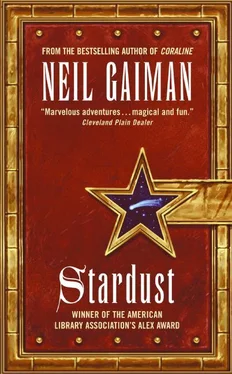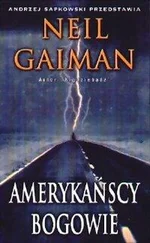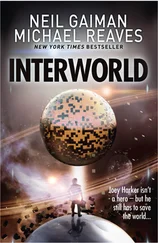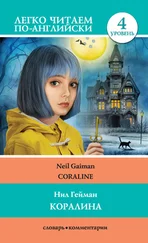As he walked, the chill of the night grew less, and once in the woods at the top of the hill Tristran was surprised to realize the moon was shining brightly down on him through a gap in the trees. He was surprised because the moon had set an hour before; and doubly surprised, because the moon that had set had been a slim, sharp silver crescent, and the moon that shone down on him now was a huge, golden harvest moon, full, and glowing, and deeply colored.
The cold thing in his hand chimed once: a crystalline tinkling like the bells of a tiny glass cathedral. He opened his hand and held it up to the moonlight.
It was a snowdrop, made all of glass.
A warm wind stroked Tristran’s face: it smelled like peppermint, and blackcurrant leaves, and red, ripe plums; and the enormity of what he had done descended on Tristran Thorn. He was walking into Faerie, in search of a fallen star, with no idea how he would find the star, nor how to keep himself safe and whole as he tried. He looked back and fancied that he could see the lights of Wall behind him, wavering and glimmering as if in a heat-haze, but still inviting.
And he knew that if he turned around and went back, no one would think any less of him for it—not his father, nor his mother; and even Victoria Forester would likely as not merely smile at him the next time she saw him, and call him “shop-
boy,” and add that stars, once fallen, often proved difficult in the finding.
He paused, then.
He thought of Victoria’s lips, and her grey eyes, and the sound of her laughter. He straightened his shoulders, placed the crystal snowdrop in the top buttonhole of his coat, now undone. And, too ignorant to be scared, too young to be awed, Tristran Thorn passed beyond the fields we know… and into Faerie.
Chapter Three
in Which We Encounter Several Other Persons, Many of Them Still Alive, With an Interest in the Fate of the Fallen Star
The Stormhold had been carved out of the peak of Mount Huon by the first lord of Stormhold, who reigned at the end of the First Age and into the beginning of the Second. It had been expanded, improved upon, excavated and tunneled into by successive Masters of Stormhold, until the original mountain peak now raked the sky like the ornately carved tusk of some great, grey, granite beast. The Stormhold itself was perched high in the sky, where the thunder clouds gathered before they went down to the lower air, spilling rain and lightning and devastation upon the place beneath.
The eighty-first Lord of Stormhold lay dying in his chamber, which was carved from the highest peak like a hole in a rotten tooth. There is still death in the lands beyond the fields we know.
He summoned his children to his bedside and they came, the living and the dead of them, and they shivered in the cold granite halls. They gathered about his bed and waited respectfully, the living to his right side, the dead on his left.
Four of his sons were dead: Secundus, Quintus, Quartus and Sextus, and they stood unmoving, grey figures, insubstantial and silent.
Three of his sons remained alive: Primus, Tertius and Septimus. They stood, solidly, uncomfortably, on the right of the chamber, shifting from foot to foot, scratching their cheeks and noses, as if they were shamed by the silent repose of their dead brothers. They did not glance across the room toward their dead brothers, acting—as best they could—as if they and their father were the only ones in that cold room, where the windows were huge holes in the granite through which the cold winds blew. And whether this is because they could not see their dead brothers, or because, having murdered them (one apiece, save Septimus, who had killed both Quintus and Sextus, poisoning the former with a dish of spiced eels, and, rejecting artifice for efficiency and gravity, simply pushing Sextus off a precipice one night as they were admiring a lightning storm far below), they chose to ignore them, scared of guilt, or revelation, or ghosts, their father did not know.
Privately, the eighty-first lord had hoped that by the time his end came upon him, six of the seven young lords at Storm-hold would be dead, and but one still alive. That one would be the eighty-second Lord of Stormhold and Master of the High Crags; it was, after all, how he had attained his own title several hundred years before.
But the youth of today were a pasty lot, with none of the get-up-and-go, none of the vigor and vim that he remembered from the days when he was young…
Somebody was saying something. He forced himself to concentrate.
“Father,” repeated Primus in his deep boom of a voice. “We are all here. What would you do with us?”
The old man stared at him. With a ghastly wheezing he pulled a breath of the thin, chill air into his lungs, and then said, in high, cold tones, like the granite itself, “I am dying. Soon my time will be done, and you will take my remains deep into the mountain, to the Hall of Ancestors, and you will place them—me—in the one-and-eightieth hollow you come to, which is to say, the first that is not occupied, and there you shall leave me. If you do not do this thing, you will each be cursed, and the tower of Stormhold shall tumble and fall.”
His three living sons said nothing. A murmur ran through the four dead sons, though: regret, perhaps, that their remains had been gobbled up by eagles, or carried away by the fast rivers, tumbled down waterfalls and off to the sea, never to rest in the Hall of Ancestors.
“Now. The matter of succession.” The lord’s voice wheezed out of him, like the wind being squeezed from a pair of rotten bellows. His living sons raised their heads: Primus, the oldest, with white hairs in his thick brown beard, his nose aquiline, his eyes grey, looked expectant; Tertius, his beard red-and-golden, his eyes a tawny brown, looked wary; Septimus, his black beard still coming in, tall and crowlike, looked blank, as he always looked blank.
“Primus. Go to the window.”
Primus strode over to the opening in the rock wall and looked out.
“What do you see?”
“Nothing, sire. I see the evening sky above us, and clouds below us.”
The old man shivered beneath the mountain-bear skin that covered him.
“Tertius. Go to the window. What do you see?”
“Nothing, Father. It is as Primus told you. The evening sky hangs above us, the color of a bruise, and clouds carpet the world beneath us, all grey and writhing.”
The old man’s eyes twisted in his face like the mad eyes of a bird of prey. “Septimus. You. Window.”
Septimus strolled to the window and stood beside, although not too close to, his two elder brothers.
“And you? What do you see?”
He looked out of the opening. The wind was bitter on his face, and it made his eyes sting and tear. One star glimmered, faintly, in the indigo heavens.
“I see a star, Father.”
“Ahh,” wheezed the eighty-first lord. “Bring me to the window.” His four dead sons looked at him sadly as his three living sons carried him to the window. The old man stood, or almost stood, leaning heavily on the broad shoulders of his children, staring into the leaden sky.
His fingers, swollen-knuckled and twiglike, fumbled with the topaz that hung on a heavy silver chain about his neck. The chain parted like a cobweb in the old man’s grip. He held the topaz out in his fist, the broken ends of silver chain dangling.
The dead lords of Stormhold whispered amongst themselves, in the voices of the dead which sound like snow falling: the topaz was the Power of Stormhold. Who wore it would be Stormhold’s master, as long as he was of the blood of Storm-hold. To which of the surviving sons would the eighty-first lord give the stone?
The living sons said nothing, but looked, respectively, expectant, wary, and blank (but it was a deceptive blankness, the blankness of a rock face that one only realizes cannot be climbed when one is halfway up, and there is no longer any way down).
Читать дальше








